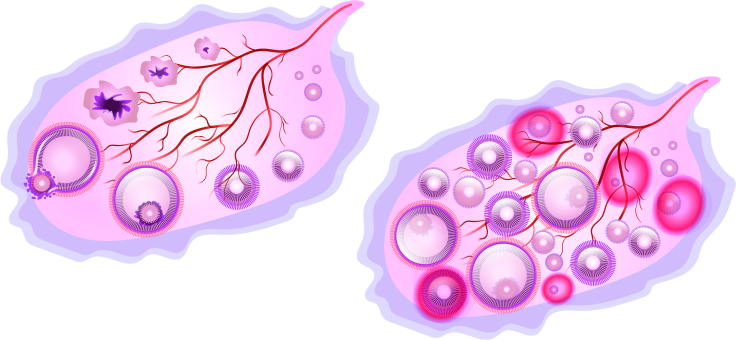Have PCOS? Your Symptoms May Vary Based On Where You Live
KEY POINTS
- Researchers looked at the geo-epidemiologic data of women living with PCOS
- The women in Alabama were more likely to have excess hair growth and insulin resistance
- This suggests "genetic and environmental influences on how this disease manifests"
Polycystic ovarian syndrome (PCOS) shows up differently in different people. Researchers have now found that the symptoms could vary based on where the women live.
PCOS is a hormone disorder that affects about 7 to 10% of women of childbearing age, according to the Endocrine Society. It causes symptoms like insulin resistance, acne, excess body hair, irregular or absent menstrual cycles and infertility. It is said to be the most common cause of infertility.
For their study, published Tuesday in The Journal of Clinical Endocrinology & Metabolism, the researchers looked at geo-epidemiologic differences among women with PCOS. They analyzed data from 1,610 Black and white women with PCOS in Alabama and California from 1987 until 2010.
The team noticed differences in the women's symptoms depending on where they lived. The women in Alabama were more likely to show symptoms like excessive hair growth and insulin resistance, the Endocrine Society noted in a news release. This was "regardless of Black or white race," researchers said. On the other hand, women with PCOS in California were actually more likely to have hyperandrogenemia or higher testosterone levels.
According to the researchers, this highlights "potential environmental impacts on PCOS."
"Our study found geographical differences in PCOS in Black and white women, suggesting there are both genetic and environmental influences on how this disease manifests," said study author Margareta D. Pisarska, of Cedars Sinai in California. "Since we have now identified that there are geo-epidemiologic differences, we intend to do follow up studies comparing Black and white women with PCOS, controlling for geo-epidemiologic differences."
They're also planning to look further at the factors that may be behind these differences. This could then help in the development of tailored treatments.
So far, PCOS is not a curable condition. However, the symptoms are treatable and manageable. For instance, medications such as birth control pills or androgen-blocking medications may be used depending on the patient's symptoms, according to the Endocrine Society. Lifestyle changes in diet and exercise may also help.
In the U.S. alone, it is estimated that some five to six million women are living with PCOS. But as an underdiagnosed condition, it is likely that many others still don't know that they have it.

© Copyright IBTimes 2024. All rights reserved.












